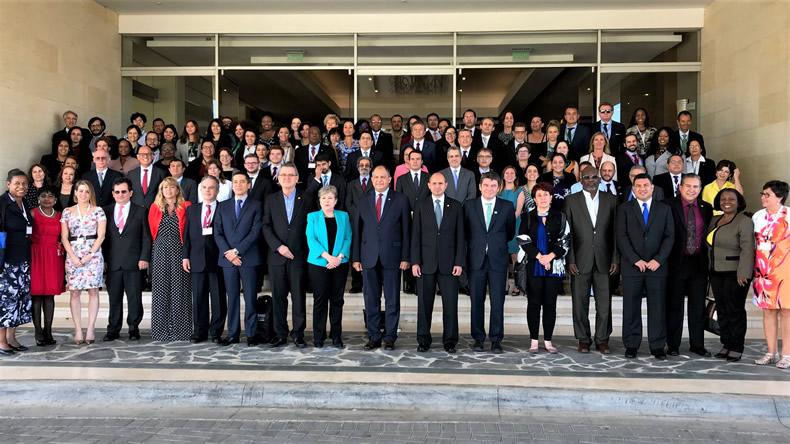 Representatives of Latin American and Caribbean countries have concluded the negotiations for a new legally binding agreement on Principle 10 of the Rio Declaration – Regional agreement on access to information, participation and justice in environmental matters in Latin America and the Caribbean (the Escazú Agreement) in Escazú, Costa Rica.
Representatives of Latin American and Caribbean countries have concluded the negotiations for a new legally binding agreement on Principle 10 of the Rio Declaration – Regional agreement on access to information, participation and justice in environmental matters in Latin America and the Caribbean (the Escazú Agreement) in Escazú, Costa Rica.
The conclusion of the negotiations and drafting process and agreement on the final version of the treaty took place on 4 March – the day of birth of Berta Cáceres – human rights and environmental defender who was killed in 2016 for her activism.
The Escazú Agreement will be open for signature by Latin American and Caribbean countries in September 2018 and it requires ratifications or other forms of approval by 11 countries of the region in order to enter into force.
In case of entering into force, the document becomes a legal instrument for:
- Protection of human right defenders in environmental matters;
- Better access of every person to information concerning the environment including dissemination of information about imminent threat to public health or the environment;
- Participation in decision-making concerning the environment;
- Access to justice in environmental matters with the procedures that are not prohibitively expensive;
- Considering the interests of persons or groups in vulnerable situations, including indigenous people.
 The Escazú Agreement strongly correlates to the principles of the Earth Charter including its Principle 13 on democratic institutions, transparency, accountability, inclusive participation and access to justice.
The Escazú Agreement strongly correlates to the principles of the Earth Charter including its Principle 13 on democratic institutions, transparency, accountability, inclusive participation and access to justice.
Such a connection makes Earth Charter International believe that civil society will support the document and will cooperate with the governments of Latin America and Caribbean countries in order to turn the provisions of the Escazú Agreement into reality in the region.
There are several actions that organizations and individuals can do to promote the Escazú Agreement in their countries:
- Organize round tables and conferences on the Agreement;
- Include information on the Agreement in educational programmes, courses and workshops;
- Organize contests of scientific papers and Media events on access to information, participation and justice in environmental matters (access rights);
- Organize special events to commemorate the life and achievements of human right defenders in environmental matters.
For further information see:
The full text of the Escazú Agreement
Official site – Economic Commission for Latin America and the Caribbean (UN agency that led the drafting process of the Escazú Agreement)
The Access Initiative the largest civil society network on access rights.







